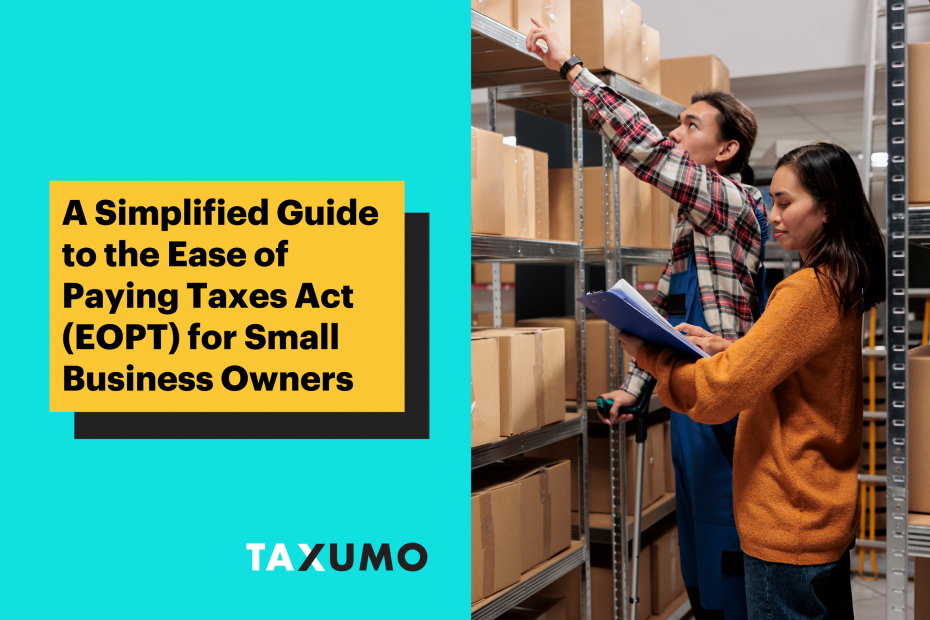The Ease of Paying Taxes Act (EOPT) marks a significant milestone in the government’s commitment to modernize tax administration, enhancing the ease of paying taxes for businesses and individuals alike. This groundbreaking legislation underscores the shift towards digitalization, simplifying tax payment processes and fostering a more efficient tax collection system. By integrating advanced technologies and digital platforms like TAXUMO, the EOPT facilitates a streamlined, user-friendly approach to tax compliance, benefiting taxpayers and the Bureau of Internal Revenue (BIR) alike.
Key Features of the Ease of Paying Taxes Act:
Taxpayer Classification for Simplified Compliance:
- Micro Taxpayers: Annual sales below P3M.
- Small Taxpayers: Annual sales between P3M and P20M.
- Medium Taxpayers: Annual sales between P20M and P1B.
- Large Taxpayers: Annual sales of P1B and above.
This classification is pivotal, introducing tailored provisions that significantly ease the tax compliance burden for micro and small taxpayers, including:
- Their Income Tax Returns shall be a maximum of 2 pages whether filed manually or electronically
- Reduced rate of 10% for civil penalties
- Reduced rate of 50% on the interest rate
- Reduced rate of P500 as a penalty for failure to file information on returns
- Individuals not required to file Income Tax Returns (ITR)
Overseas Filipino workers (OFWs) whose income is solely derived from their income as overseas contract workers are no longer required to file their ITR.
- Where and when to file and pay taxes
Under previous laws, taxes are filed and paid within the jurisdiction where the business is registered. If taxes are filed and/or paid outside of the business’ place of registration, there is a 25% penalty.
Taxpayers can now file and pay taxes through any ‘authorized tax software provider,’ like TAXUMO, without incurring penalties for filing outside their business jurisdiction. The Ease of Paying Taxes also has removed the penalty clause.
- BIR Registration and Annual Registration Fee
Under the EOPT, the P500 annual registration fee is no longer required. BIR is also now mandated to simplify business registration and tax compliance requirements for self-employed individuals and/or professionals.
- Withholding Tax
Deduction and withholding of tax arises at the time the income has become payable. Withholding tax also has been removed as a requirement to file for deductions on income tax.
- VAT
Under the Ease of Paying Taxes law, VAT is based on gross sales of goods or services and no longer based on gross receipts. Prior to EOPT, gross receipts are required to prove input VAT while under the new law, invoices are now sufficient to substantiate input VAT making the process easier for taxpayers.
Note that sales/lease of goods, properties, and/or services that are not more than P3M in value are now exempt from VAT.
It is important to remember that payment of VAT is via accrual which means that even if not yet collected, VAT must be declared and already paid.
- Sales/Commercial Invoices and Receipts
Information on the receipt/invoice is made simpler. Declaring the “business style” is no longer required.
Under the EOPT, sales/commercial invoice or receipts are required to be issued for transactions above P500 in value. If the individual transactions are less than P500, the taxpayer is still required to issue an invoice or receipt for the total and aggregate sale at the end of the day if the total sales is at least P500.
- Preservation of Books of Accounts and other Accounting Records
The EOPT has made it easier for taxpayers to keep their accounting records by reducing the period covered. Previously, taxpayers were mandated to keep their records for 10 years. Under the EOPT, the period has been reduced to 5 years from the date of the filing of the return.
The Implementing Rules and Regulation (IRR) of the Ease of Paying Taxes law is set to be issued in 90 days. It is also important to remember that under the EOPT, taxpayers have 6 months from the effectivity of the IRR to comply with EOPT provisions on VAT and other percentage taxes.
Sign up for a FREE Taxumo account today and let us help you make tax filing simpler and easier! Visit www.taxumo.com

Pingback: Taxumo & Freelance Journalists' Guild: Ease of Paying Taxes | Taxumo - File & Pay Your Taxes in Minutes!
Inquiry – how to issued billing invoice & Official receipt implementing EOPT? Is there any difference of issuing said invoice & receipts? there are required formats to use?.
Thank you.
Helen Caldoza
Hello Helen,
Issuing the sales invoice is just the same way that we do when we issue ORs. Its just that the official name of the sales documentation is Sales Invoice instead of Official Receipt. Note though that since we’re under accrual basis already, we should issue the Sales Invoice on the date when we receive the actual order. 🙂